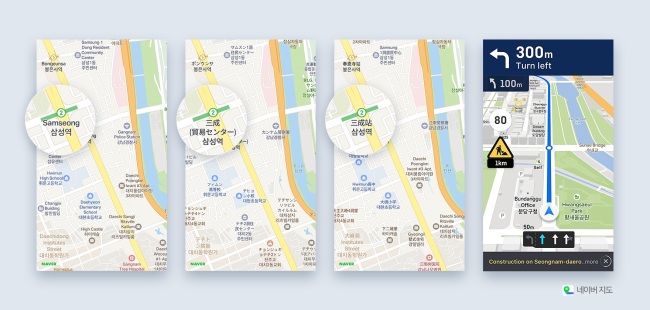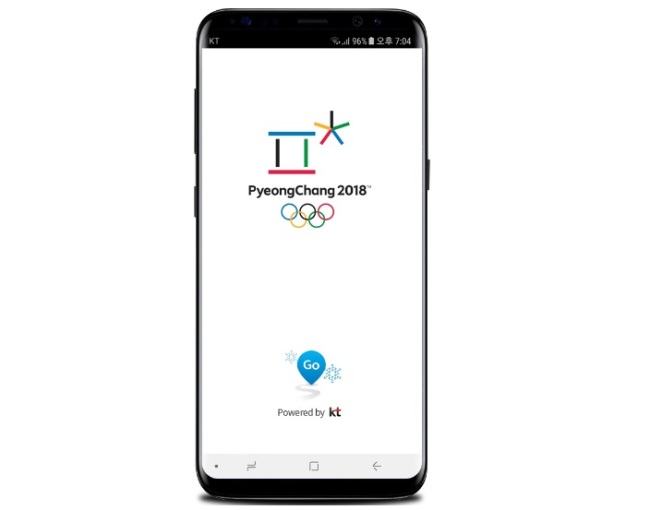[PyeongChang 2018] Alternative apps to Google Maps for Winter Olympics
By Sohn Ji-youngPublished : Jan. 25, 2018 - 15:18
In most parts of the world, Google Maps is the go-to source for travelers in foreign countries, as it offers easy public transportation guidance as well as directions for driving, biking and walking.
However, South Korea is one of the few countries in the world where Google Maps is not offered in its full capacity, with critical features like driving navigation unavailable due to security restrictions.
South Korea, still technically at war with North Korea, prohibits companies from exporting the country’s map data to servers abroad unless certain security measures are taken.
Map data exports are allowed only if satellite images of sensitive locations such as government facilities and military installations are edited out. However, Google has not agreed to the deletions, and therefore continues to offer only basic map functions.
Under the circumstances, the following are useful Korean mobile map apps available in English and other languages that can help non-Korean speakers navigate their way around Seoul and PyeongChang.
However, South Korea is one of the few countries in the world where Google Maps is not offered in its full capacity, with critical features like driving navigation unavailable due to security restrictions.
South Korea, still technically at war with North Korea, prohibits companies from exporting the country’s map data to servers abroad unless certain security measures are taken.
Map data exports are allowed only if satellite images of sensitive locations such as government facilities and military installations are edited out. However, Google has not agreed to the deletions, and therefore continues to offer only basic map functions.
Under the circumstances, the following are useful Korean mobile map apps available in English and other languages that can help non-Korean speakers navigate their way around Seoul and PyeongChang.

Naver Maps and Kakao Maps
South Korea’s internet portal giant Naver has upgraded its flagship mobile map app Naver Maps to include four languages, Korean, English, Chinese and Japanese, in time for the PyeongChang Olympics.
Naver Maps is currently the most widely used mobile map app in Korea, alongside Kakao Maps operated by Kakao, which runs the nation’s dominant mobile messenger KakaoTalk.
The basic map is available in the four languages, while the driving navigation function is available in English. Naver Maps is currently the only mobile navigation app in Korea that offers directions in English.
On top of the basic functions, Naver Maps also offers specified transportation guidance for Olympic venues in PyeongChang, including maps of parking lots for transit to shuttle buses that carry passengers to Olympic sites and indoor maps of stadiums.
The language setting is automatic. Naver’s map app will run on a smartphone in the default language setting of the device’s operating system. For instance, if a phone’s language is set to English, the map will automatically be offered in English.
In addition, the names of buildings are shown both in Korean characters and the selected language, making it convenient for foreigners to identify the name and location of a desired destination to Korean taxi drivers.
Alongside Naver Maps, Kakao’s map app is also available in English. Kakao Maps offers its flagship map functions, such as route recommendations for public transportation, walking and driving in English. No other languages are available.
Take note that though Kakao Maps offers a driving navigation function, which is made accessible by connecting to its sister navigation app Kakao Navi, it is available in Korean only.

Go PyeongChang app
For those looking to find their way around sports venues in the county of PyeongChang and its surrounding regions, the official Go PyeongChang app may prove to be useful.
Go PyeongChang is the official transportation app for the Olympics. It was created by Korea’s mobile carrier KT, in partnership with the PyeongChang Organizing Committee for the 2018 Olympic & Paralympic Games.
The app is available in four languages -- Korean, English, Japanese and Chinese -- and can be downloaded on Google Play and Apple’s App Store.
When users type in their starting location and destination, the app recommends a transportation route and an estimated price for the journey. It also offers an English-language navigation service, as it is synced with Naver Maps’ data and services.
In addition, users can reserve KTX train and bus tickets from Seoul to PyeongChang and vice versa on the Go PyeongChang app, which is linked to the reservation systems of Korea Railway Corp. as well as local bus operators.
The app also connects to various local ride-sharing services including Buxi, Ebus and Easi6 as well as car-sharing service apps, such as SoCar and Green Car, which rent out vehicles located at various parking lots across the country. Users can rent a vehicle for a desired timeframe through the mobile apps.
The Go PyeongChang app will also be available at on-site visitor support PCs installed across 29 transportation kiosks across the Olympic venues, according to KT.
By Sohn Ji-young (jys@heraldcorp.com)



![[AtoZ into Korean mind] Humor in Korea: Navigating the line between what's funny and not](http://res.heraldm.com/phpwas/restmb_idxmake.php?idx=644&simg=/content/image/2024/04/22/20240422050642_0.jpg&u=)
![[Exclusive] Korean military set to ban iPhones over 'security' concerns](http://res.heraldm.com/phpwas/restmb_idxmake.php?idx=644&simg=/content/image/2024/04/23/20240423050599_0.jpg&u=20240423183955)


![[Graphic News] 77% of young Koreans still financially dependent](http://res.heraldm.com/phpwas/restmb_idxmake.php?idx=644&simg=/content/image/2024/04/22/20240422050762_0.gif&u=)

![[Herald Interview] Why Toss invited hackers to penetrate its system](http://res.heraldm.com/phpwas/restmb_idxmake.php?idx=644&simg=/content/image/2024/04/22/20240422050569_0.jpg&u=20240422150649)





![[Exclusive] Korean military to ban iPhones over security issues](http://res.heraldm.com/phpwas/restmb_idxmake.php?idx=652&simg=/content/image/2024/04/23/20240423050599_0.jpg&u=20240423183955)



![[Today’s K-pop] Ateez confirms US tour details](http://res.heraldm.com/phpwas/restmb_idxmake.php?idx=642&simg=/content/image/2024/04/23/20240423050700_0.jpg&u=)